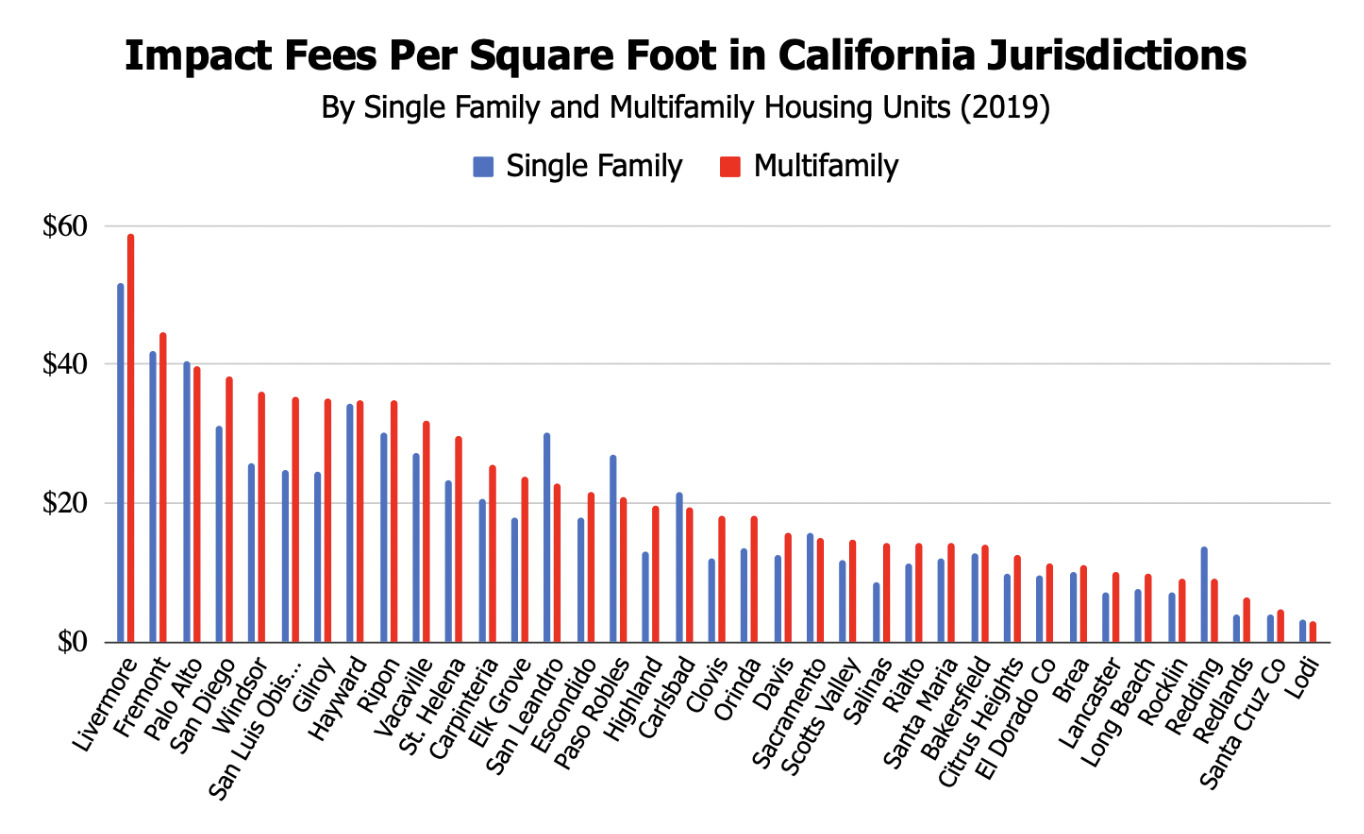New Report: How California Jurisdictions Abuse Housing Impact Fees
UCLA Researchers Find Broad Disparities in Cost of Fees, Purpose, and Intent
“Some cities adjust impact fees upward until new housing is no longer feasible, at all.”
CLICK HERE to download and read report
SACRAMENTO – The California YIMBY Education Fund, in collaboration with a team of graduate researchers at the UCLA Luskin School of Public Affairs, today released a new report that finds housing impact fees vary widely across the state’s local jurisdictions – and that these fees often play a role in exacerbating the state’s housing shortage and affordability crisis.
The report, “The Impact of Fees: Rethinking Local Revenues for More Multifamily Housing,” recommends a suite of impact fee and revenue reforms to help cities balance their budgets without accidentally, or deliberately, inhibiting housing growth.
“Too many cities in California have tailored their housing impact fees to inhibit or even block multifamily housing,” said Brian Hanlon, CEO of California YIMBY. “We obviously need to make sure cities have the revenues they need to pay for infrastructure and schools, but the current approach invites abuse – and is exacerbating the housing affordability crisis.”
According to the report, the average impact fee on a home in a multifamily building in California is $21,703, nearly triple the national average of $8,034. Similarly, California’s average single-family unit fee of $37,471 is triple the national average of $13,627. It is not uncommon for total development fees – including impact fees, services fees, in-lieu fees, and others – to reach $150,000 per unit.
Most jurisdictions also charge higher fees per square foot on multifamily homes compared to single-family homes, which disincentivizes multifamily housing construction. In some cases, higher fees for multifamily homes result from overt efforts to block the construction of new apartment buildings.

“In many of the jurisdictions we studied, the cost of maintaining their existing infrastructure is loaded disproportionately onto the residents of new buildings – but the benefits of functioning infrastructure and good schools accrue to all the residents of a community,” said M. Nolan Gray, Research Director for California YIMBY. “It’s essentially a form of wealth transfer from new residents of multi-family housing, who tend to be lower-income, to existing residents of single-family homes – who tend to be wealthier.”
The report outlines a series of remedies and reforms that policymakers could consider to reign in abusive and unfair fees, while ensuring jurisdictions can generate the revenues they need. These include:
- Stronger enforcement of state laws that require fees to be transparent, and calculated on a per-square-foot basis, regardless of housing typology
- A cap on impact fees, on a per-square-foot basis
- Measures to replace lost municipal revenue streams, such as bonds and other local and state revenue initiatives
CLICK HERE to download and read report
About California YIMBY
California YIMBY is a community of neighbors who welcome more neighbors. We believe that an equitable California begins with abundant, secure, affordable housing. We focus on housing and land use policy at the state and local level to ensure grassroots organizers and city leaders have the tools they need to accelerate home building. Learn more: https://cayimby.org/